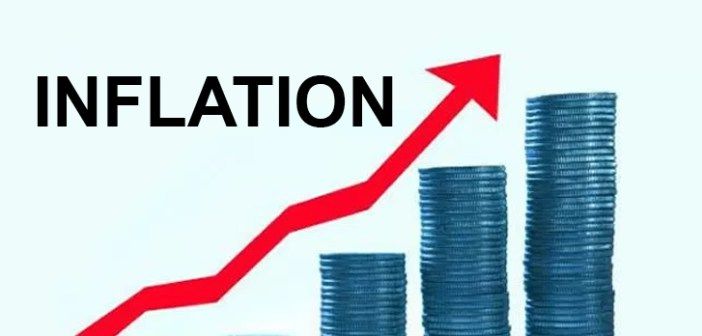Ghana’s inflation of 40.1% is the 4th highest in Sub-Saharan Africa in 2023, the World Bank October 2023 Africa Pulse Report has revealed.
Zimbabwe is 1st with more than 80% inflation and is followed by Sudan (60%) and Sierra Leone (42%).
According to the report, food and energy prices are still contributing to driving headline inflation in most countries in the region.
By July 2023, it said, nearly half of the countries in the region with monthly available information on food prices (20 of 41 countries) had double-digit year-on-year rates of food inflation, with the fastest increases experienced in Burundi, Ghana, Malawi, Sierra Leone, Sudan, and Zimbabwe.

The report furthered that there has been progress in the fight against inflation in several countries in the region with some of them having already reduced inflation to near or within the central bank target band for example, Kenya, South Africa, and Uganda.
“In other countries, inflation still remains above target and has been for a prolonged period of time and/or shows no sign of having peaked Ghana, Nigeria, and Sierra Leone”, it added.
Despite the disinflation trend exhibited by some countries in the region, the report stressed that the rates of consumer price growth are still high, above target, and above pre-pandemic levels for others.
In contrast, the rate of inflation in four countries in the region is expected to accelerate by more than 10 percentage points in 2023 from last year, namely, the Democratic Republic of Congo, Ghana, Sudan, and Zimbabwe.
Inflation for August 2023 falls to 40.1%
The year-on-year inflation for the month of August 2023 fell to 40.1% from the 43.1% recorded in July 2023, the lowest in 12 months.
According to data from the Ghana Statistical Service, Food inflation witnessed a decrease to 51.9% in August 2023, from 55.0% the previous month.
Non-food inflation also dropped by 2.9% to 30.9% in August 2023.
For the first time in the year, inflation for imported products recorded a rate lower than locally produced items. Whilst inflation for locally produced items was 42.4%, inflation for imported items was 36.2%.
Latest Stories
-
Election 2024: Engagement with security services productive – NDC
1 min -
‘Let’s work together to improve sanitation, promote health outcome’ – Sector Minister urges
2 mins -
Ellembelle MP cuts sod for six-unit classroom block at Nkroful Agric SHS
6 mins -
‘I’ll beat the hell out of you if you misbehave on December 7’ – Achiase Commanding Officer
8 mins -
AFPNC leads the charge on World Prematurity Day 2024
14 mins -
Court remands unemployed man over theft of ECG property
20 mins -
Election security rests solely with the police – Central Regional Police Command
22 mins -
NCCE engages political youth activists at Kumbungu on tolerance
23 mins -
‘In Mahama’s era students lacked chalk, but are now receiving tablets’ – Bawumia
32 mins -
Project commissioning not a ploy to attract votes – Oppong Nkrumah
34 mins -
CBG records GH¢1bn revenue in Q3
36 mins -
Mahama vows to create an agro-processing zone in Afram Plains
50 mins -
Political parties should plan for losses, not just wins – IGP advises
52 mins -
524 Diasporan Africans granted Ghanaian citizenship in ceremony
54 mins -
Mahama urges Afram Plains North residents to avoid ‘skirt and blouse’ voting
55 mins

